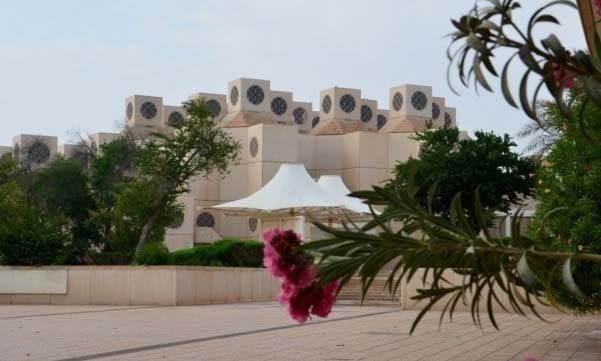
Qatar University is relaxing its admissions standards to make it easier for more applicants to be accepted into most of its undergraduate programs.
Those applying for the coming academic year will now need to have a minimum high school score of 70 percent to gain acceptance to six out of QU’s eight colleges, officials said.
Previously, the minimum bar for prospective students at the colleges of Arts and Sciences; Business and Economics; Sharia and Islamic Studies; Education; Engineering; and Law was 75 percent.
However, students wishing to study at the College of Medicine and the College of Pharmacy will continue to need a minimum high school score of 85 percent and 80 percent respectively, QU’s vice president for Student Affairs Dr Khalid Al-Khanji said this week as he outlined the new policies.
“The minimum percentage for acceptance has been amended in all specializations from 75 percent to 70 percent, except for medicine and pharmacy,” Al-Khanji said at a briefing on the new arrangements.
The new standards would apply to both Qatari and non-Qatari students seeking entry, he added.
Readmission
The university has also made it easier for students who have been dismissed from programs, or who have voluntarily withdrawn, to apply for readmission.

These students may reapply to study at the university after a minimum of one semester’s suspension (not including the summer). They can only reapply once, however.
Such applicants can be readmitted to the college they were previously studying at, or to another college, and keep their cumulative grade point average (GPA) for courses taken up to 10 years previously.
They may also transfer any courses taken in the past five years in which they had a score of C and above, to a new program on acceptance of readmission.
Such courses can only make up 50 percent of their new study plan, the university said in a statement.
Summer term
And, in a move that could allow students to fast-track their degrees and complete them in a shorter time-frame, Al-Khanji said the academic calendar will now include three semesters during the summer term.

Traditionally a vacation time, summer classes will now be held from June 26-July 28 (four weeks), June 26-Aug. 11 (six weeks) and July 31-Aug. 25 (4 weeks).
Thus, students could take extra courses to gain more credit hours during the new summer terms.
“The new academic calendar provides students the opportunity to get 12 credit hours and four courses, instead of nine credit hours and three courses, as per the previous calendar,” Al-Khanji said in a statement.
The new procedures “align with the students’ needs and academic level and aims to enhance their performance to achieve success in their academic journey,” he continued.
New policies
This is the second time in the last few months that QU has revised its policies to make it easier for struggling students to improve their GPA and get a degree.
In December, it announced that its academic probation procedures had changed, making it more difficult to expel students from the university, and giving them more opportunities to make up for bad grades or failed courses.
Formerly, students who received four intermittent warnings for having a GPA of less than “2.0” would be expelled.

Under the revised policy, students who improve their grades to at least a 2.0, which is roughly equivalent to a C, will have previous warnings stricken from the record altogether, officials said at the time.
In December, Dr. Mazen Hasna, QU’s vice-president and chief academic officer, maintained that the changes would not affect academic standards, and graduates would continue to “serve the Qatari labor market and provide it with the best national qualifications.”
Meanwhile, four years ago, the university was instructed by the then-Supreme Education Council (SEC) that undergraduate classes in the arts and humanities should be conducted in Arabic rather than in English.
The decision was seen at the time as part of a move to allow entry to admit more Qatari students who previously did not have the requisite standard of English.
The number of students attending QU has significantly increased in recent years. While the university currently has a student body of around 15,000, this is expected to rise to 25,000 by 2019 as part of a campus expansion.
Thoughts?






